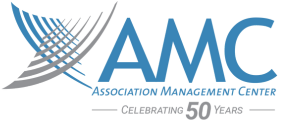
Case Study: Anticipating Global Trends to Secure Future Growth
ITNS incorporates Anticipatory Organization framework into strategic planning to drive innovation and growth opportunities in the face of a declining workforce.
Challenge
As the professional community of transplant nurses, the International Transplant Nurses Society (ITNS) provides relevant evidence-based education, research, and advocacy to foster excellence in the care of transplant patients worldwide.
Noting a trend of decreasing numbers in the nurse population, ITNS realized the significant impact fewer nurses would have on the viability of the specialty of transplant nursing and the Society in general. With that in mind, ITNS also wanted to determine what other trends would challenge the Society in the future and how to address these challenges to ensure continued interest in the specialty and foster an energetic and engaged membership.
Process
Partnering with AMC Consulting Services, the ITNS Board met for an anticipatory-based discussion about the future of transplant nursing and the Society. AMC consultants led them through a generative session that incorporated a unique method of considering market trends and their impact on the transplant nursing profession and ITNS’s strategic future. Introducing concepts from The Anticipatory Organization (AO) by Daniel Burrus, which provides a framework to look at trends and data in a way that creates a culture of innovation as it relates to both every-day and transformative change, AMC and the board focused on ITNS’s strategic future.
After learning about key AO concepts, the ITNS board compiled lists of global hard and soft trends in transplant nursing that are influenced by demographic, regulatory, and technology shifts. The board then separated into two small groups for more in-depth discussions of these three hard-trend categories before reporting back to the full group. Next, the board learned about soft trends specific to ITNS. A second round of small group discussions followed and concluded with another full group report out.
The overall objective of the generative session was to assist the board in developing a list of key trends and understanding how these trends should guide strategic priorities to ensure future relevance of the profession. Tactical actions that will help the Society achieve goals toward this end were also discussed.
Results
The board’s future view projected by applying AO concepts to the specialty practice of transplant nursing exposed many challenges, but they were not viewed as insurmountable. Several ideas emerged that can be implemented later in the strategic planning process to reach identified objectives in the areas of advocacy, competency, diversity, ethics, and safe practices. ITNS can reference these trends when planning strategies as well as budgetary and staff resources.
AMC consultants also worked with the board to formulate tactics to take advantage of those trends, with the goal of creating products and programs and growing membership.
Equally as important as tactics to implement in the present, AMC consultants also encouraged ITNS to keep the conversation going about these important trends (for instance, by selecting one trend for discussion at each board meeting). A continued focus on future thinking with strategic attention paid to how ITNS allocates resources and measures return was another AMC-recommended integration into their regular practice.
“The best part of this project was our Board became energized with excitement by the potential growth of our society, being actively engaged in predicting change, and discussing new opportunities to shape the future of ITNS Global.
I highly recommend AO to all organizations as it offers great framework for innovation, transforming future possibilities and success, and most of all, it reminds us of the passion we have for our profession.”
—Joyce Trompeta, PhD PNP, ITNS President Emeritus


